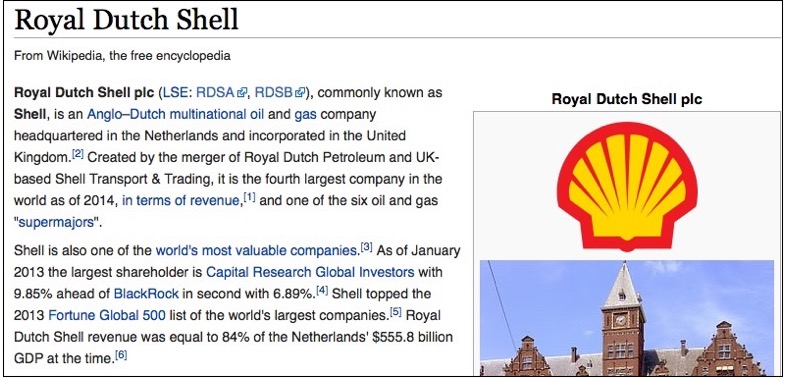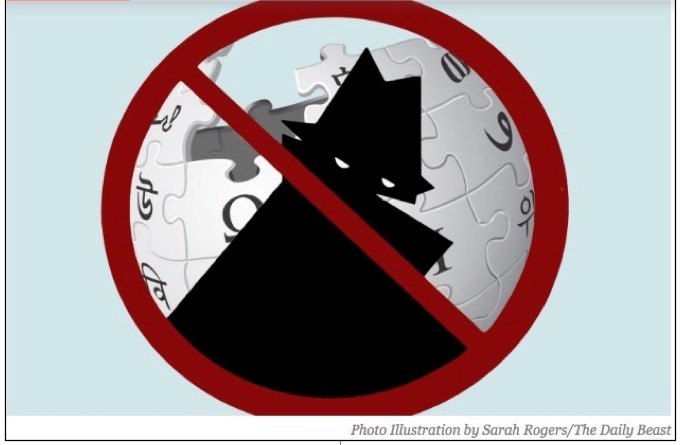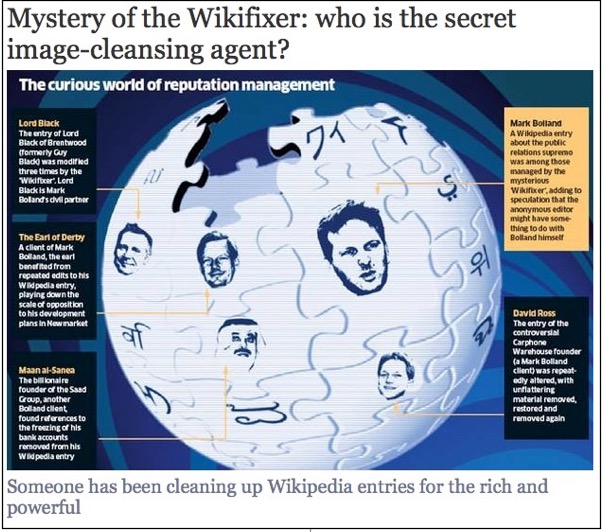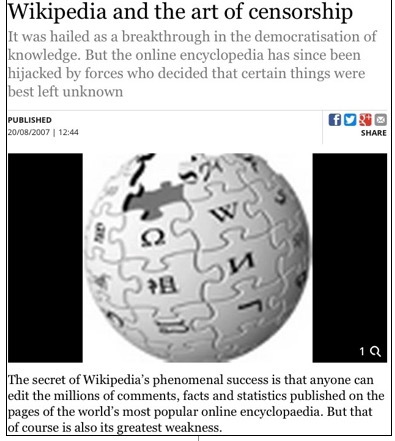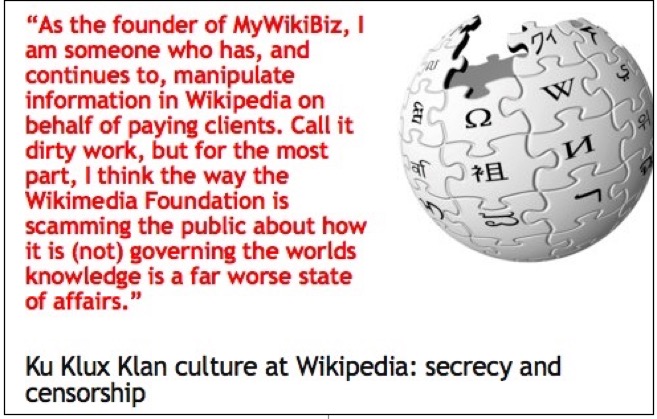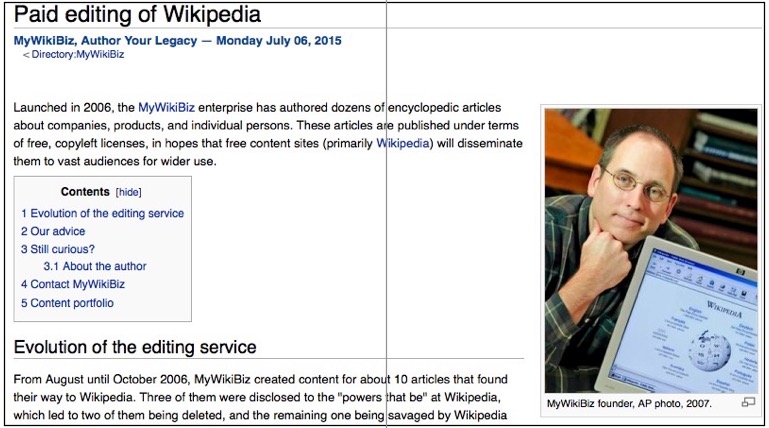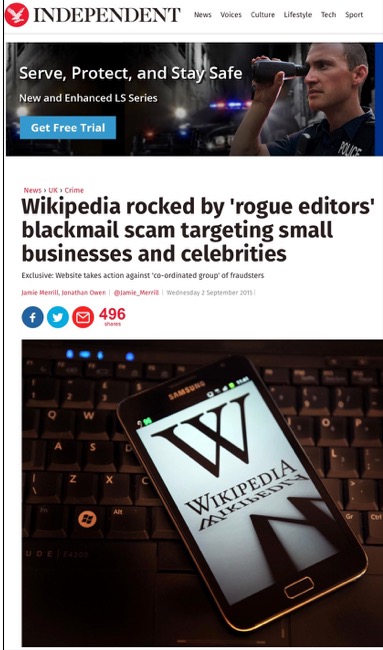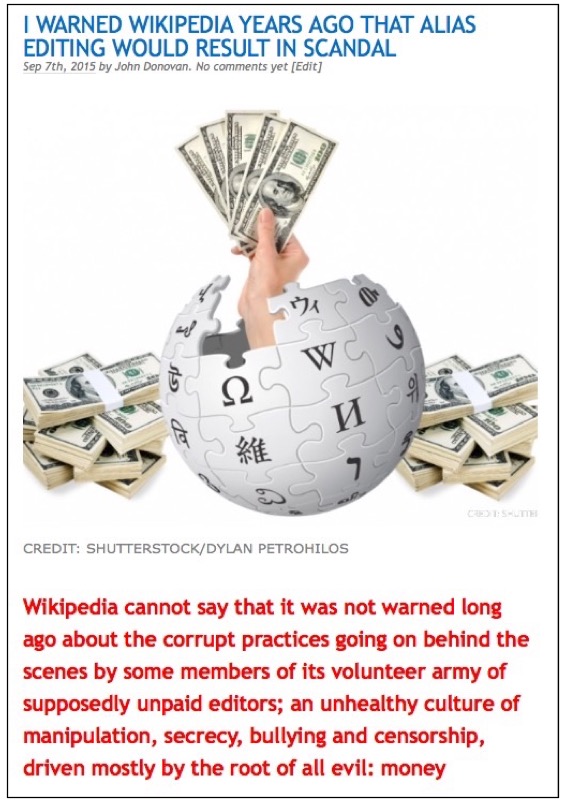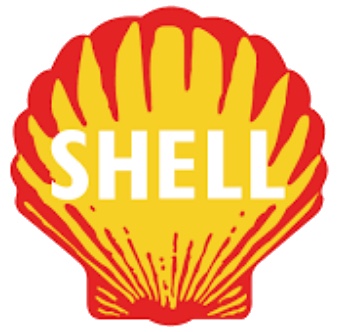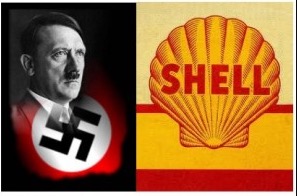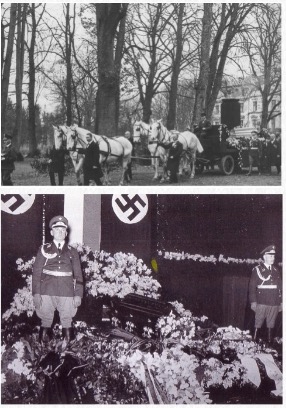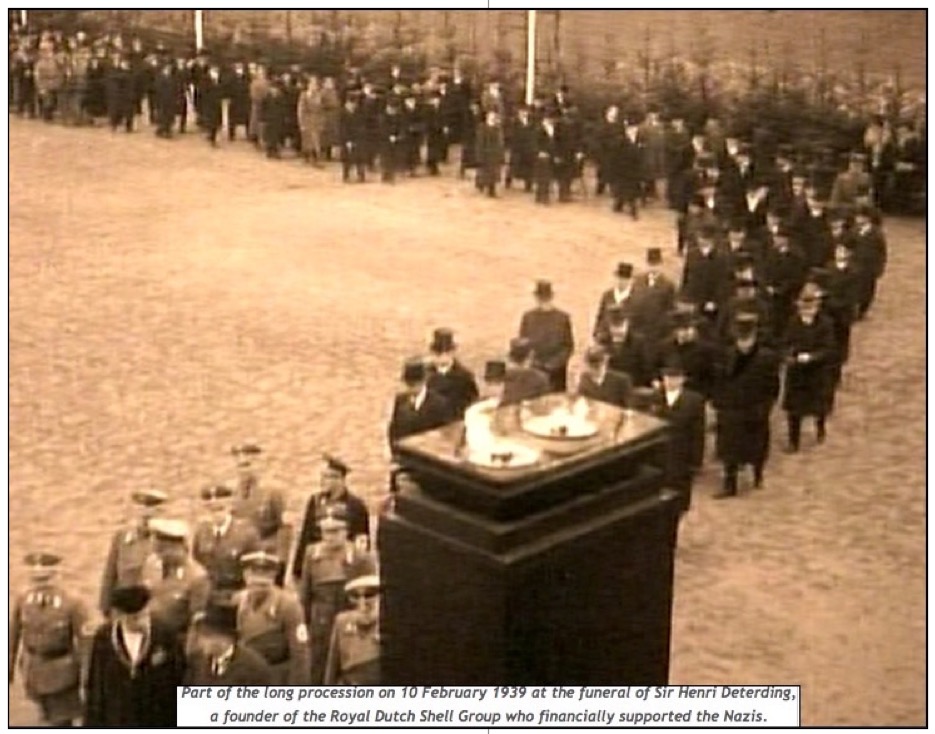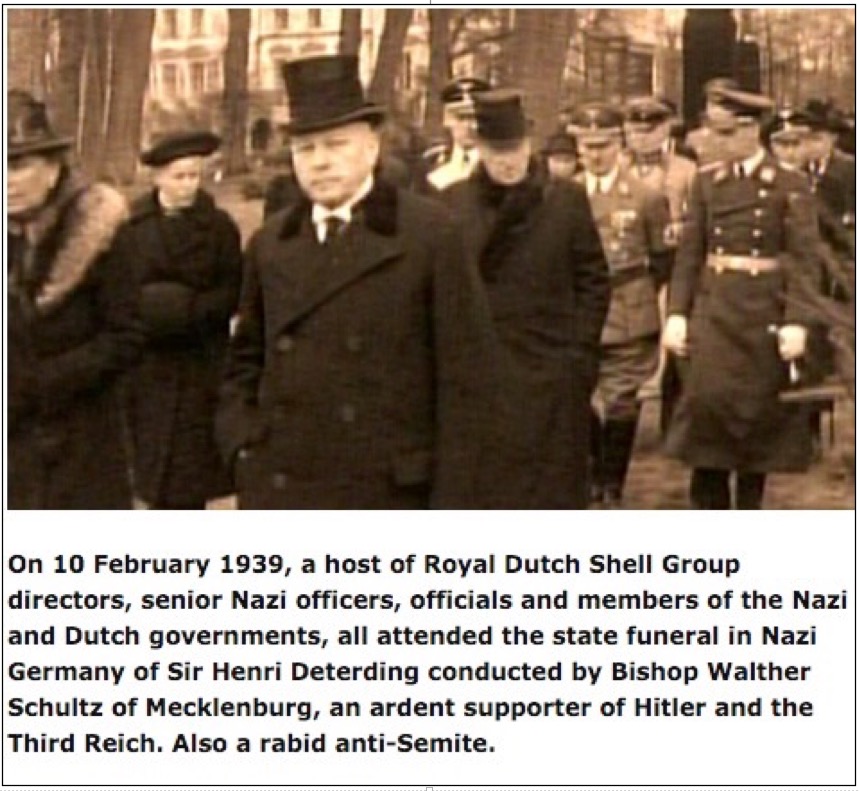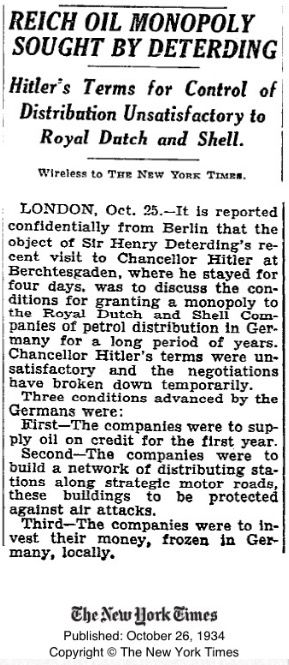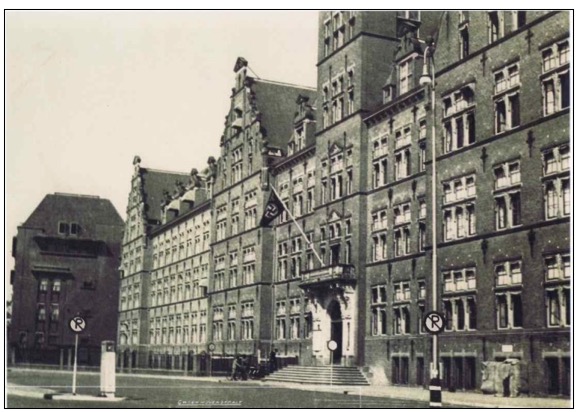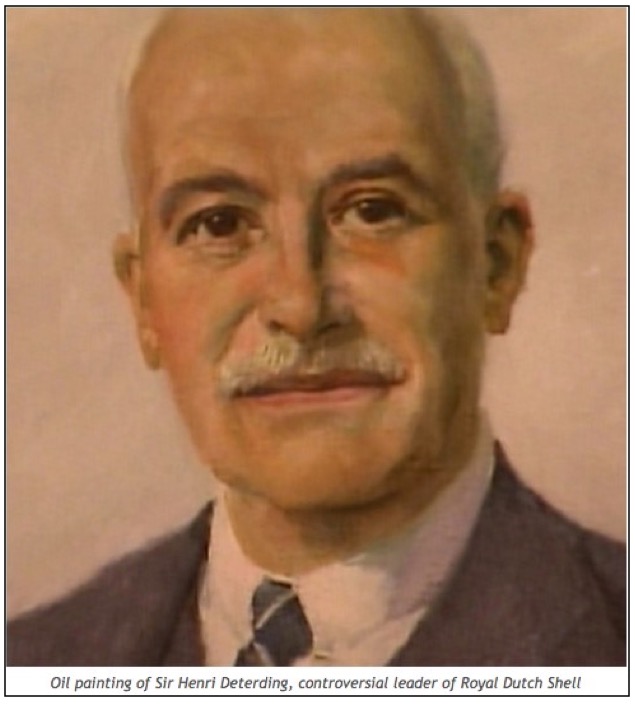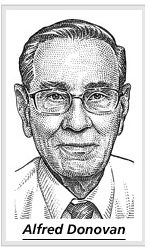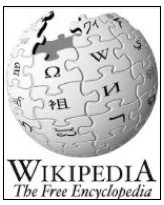 Despite the fact that Sir Henri Deterding was a founder and legendary leader of Royal Dutch Shell for almost four decades, at the date of checking on 19 January 2016, there was not a single reference to him in the Wikipedia article – “Royal Dutch Shell”. It was once included. Here is the proof. The article should cover Shell’s entire history, not a sanitized version with no mention of Sir Henri or the Nazis.
Despite the fact that Sir Henri Deterding was a founder and legendary leader of Royal Dutch Shell for almost four decades, at the date of checking on 19 January 2016, there was not a single reference to him in the Wikipedia article – “Royal Dutch Shell”. It was once included. Here is the proof. The article should cover Shell’s entire history, not a sanitized version with no mention of Sir Henri or the Nazis.
Like the previous one, this chapter is not directly related to Shell’s Nazis history.
It does, however, provide a further example of the gap between Shell’s claimed business principles pledging honesty, integrity, and transparency, versus its actual conduct. The difference between the projected PR image and the rather more seedy reality.
I am a fan of Wikipedia and use it frequently. Its co-founders each deserves plaudits and respect for its creation and for making it free to use. Unfortunately, it is flawed to a degree that damages the integrity of many Wikipedia articles.
I refer to the anonymous editing, which allows skullduggery to take place.
Shell and other unscrupulous parties have exploited this loophole. Shell’s employees and/or agents have secretly deleted information from Wikipedia articles about Shell they consider damaging to Shell’s reputation.
Wikipedia entries are supposedly written by open and transparent consensus among article editors. In reality, Wikipedia is built on a platform of secrecy and concealment. It leaves articles about businesses wide-open to censorship, manipulation and sabotage by parties with undeclared and often commercially driven motives.
Unpaid volunteers acting as administrators and editors are supposedly the bedrock on which Wikipedia is built. It is a mainly secretive community in which the vast majority of volunteers edit using aliases. They are free to edit any articles, without anyone having a clue of who they are or about their background. Consequently, it is impossible to determine if they have a potential conflict of interest.
(The graphic is from The Independent newspaper article ”Mystery of the Wikifixer: who is the secret image-cleansing agent?)
Wikipedian’s using aliases are also able to comment on the editing work of other contributors and vote on the deletion of Wikipedia articles.
Hence, there is a lot of power and influence and no realistic accountability.
If due to some alleged transgression, a Wikipedia editor is banned from editing, they can return under a new alias using a new IP address, with no bad odor attached. In other words, an entirely fresh start.
“Wikipedian” culture has some similarity to the Ku Klux Klan, without the racist element.
The privacy of those choosing to keep secret all information about their identity is respected and maintained within the Wikipedia community. A community that has developed its own cultish language, arising partly in response to skullduggery by some editors.
There are Wikipedia articles about every major business. A company is not permitted to edit any articles about itself. For example, BP is not supposed to edit Wikipedia articles about BP.
Because of the popularity of Wikipedia, the content of a Wikipedia article about a business is important because it can have a positive or negative impact on the reputation of the business. This, in turn, can impact on its value.
In this context, the behind-the-scenes editing of Wikipedia articles has been described as the world’s biggest spinning operation.
With regard to Shell, in particular, Wikipedia has been systematically cleansed of negative, but accurate, properly sourced, verifiable information about the company.
Some entire articles about Shell have been totally deleted by a handful of mainly anonymous censors reaching a consensus.
My suspicions about what was going on were further aroused for a number of reasons:
- I discovered to my surprise an obsession by Royal Dutch Shell management over my past voluntary work editing Wikipedia articles. In particular, articles relating to Shell. Information Shell supplied to me in response to a Subject Access Request, included Shell internal documents and internal emails from March 2007, some marked confidential. Participants in the correspondence were discussing my Wikipedia editing and its possible impact on shareholders (and by implication share value) and on students.
- The subject was mentioned literally 101 times within Shell internal correspondence. The emails contained a reference to Deterding and Hitler. There was also discussion about the risk of Shell being caught if it tried to edit the relevant articles. One participant in the correspondence pointed out: “Companies, their agents, or anyone else for that matter, are not supposed to edit Wikipedia entries they have a vested interest in. Doing so undermines the editorial integrity of the product.”
- “WikiScanner” technology detected that articles were edited from Shell premises. When Shell has dirty work in mind, it is often passed on to a third party, thereby distancing Shell from actions taken by the third party. Shell HAS hired a third party agency specializing in reputation clean up on the Internet. I have the evidence. There are many such agencies offering their services.
- Information freely available on the Internet provides a blueprint of how to infiltrate Wikipedia and manipulate articles. It exploits the Wikipedia policy permitting concealment of identity and background. It advises on a stratagem of deception to disguise intent. For example, editing a wide-range of articles to avoid being identified as a one-topic contributor. It discusses implications relating to IP addresses. The objective being for an organized group of infiltrators to edit target articles without detection: I will not go into detail for obvious reasons.
- When I became a volunteer editor on Wikipedia, I declared from the outset my name, website, and connection with Shell. Very soon after making the first edits, it became apparent that a then senior editor using the pseudonym “BosMo” was closely monitoring my contributions. I gained the impression that he or she was an admirer of Shell. “BosMo” quickly nominated for deletion a Shell related article that I originated. It survived the nomination. I then received a tip from a Shell insider identifying Andrew Cates, a former CEO and Country Chairman of Shell, as being “BosMo.” Mr. Cates confirmed to me that this was true.
Please see “Royal Dutch Shell Wikipedia Machinations” for more information about my contact with Andrew Cates, a man I admire despite his high regard for Shell.
On my own website, I feature all published articles about Shell, whether positive or negative in relation to the oil giant.
I took the same approach when acting as a Wikipedia volunteer editor.
Ironically, a Wikipedia article I instigated and authored, which containing nothing but positive information about Shell, covering, for example, charitable works and donations by the company and/or its employees, was removed in its entirety on the grounds of being biased in favor of Shell. Deleted despite the fact that all of the information within the article was supported by linked verifiable independent sources.
As a result of the strenuous efforts by a handful of dedicated people apparently on a mission, many acting under the cover of an alias, information about Royal Dutch Shell on Wikipedia has been transformed. Negative accurate information supported by newspaper articles, government agency publications, court documents, etc. has vanished.
Instead, we have a collection of mainly sanitized information about Royal Dutch Shell. Much of it could have been written by, or on behalf of, Shell PR people. Perhaps it was.
It is not just business articles that are laundered. The same thing has happened to Wikipedia articles about politicians. See “Capital Hill Buzz: Polishing senators’ images on Wikipedia.”
Much of the content of this chapter is taken from my article: “Ku Klux Klan culture at Wikipedia: secrecy and censorship.”
In response to the article, I was contacted by an industrious entrepreneur, Gregory Kohs (photo shown in above screenshot), the owner of an agency MyWikiBiz, who has freely admitted to manipulating information on Wikipedia on behalf of paying clients.
At the time of checking, on 19 January 2016, the name of Sir Henri Deterding did not appear in the Wikipedia article about the Winterhilfswerk scheme. No mention whatsoever despite his immense contribution. It is inconceivable that any other donor would have sent 7,000 railway carriages full of food products, as he did on one occasion.
As pointed out, there is no mention of him in the Wikipedia Royal Dutch Shell article checked on the same date.
Complete omission despite the fact that Sir Henri was far and away the most important figure in the entire history of the Royal Dutch Shell Group.
The Wikipedia article about my website royaldutchshellplc.com is another disgrace in terms of censorship and being years out-of-date. As of 19 January 2016, my father was still shown as being an operator of the site, when in fact he passed away in 2013.
Under the circumstances, I do hope that some readers, using the vast amount of verifiable evidence accumulated within, will quote from it to edit relevant Wikipedia pages.
The articles would then fairly and accurately reflect the true history of Sir Henri Deterding and Royal Dutch Shell.
That is not currently the case.
In September 2015, a number of articles were published about the alias-editing flaw that I first drew to the attention of Wikipedia five years ago.
The articles are self-explanatory:
Forbes: 5 Oct 2012: Wikipedia’s “Pay-for-Play” Scandal Highlights Wikipedia’s Vulnerabilities
Wikipedia’s dark side: Censorship, revenge editing & bribes a significant issue:13 Oct 2012
The Telegraph: 2 Sept 2015: Wikipedia hit by blackmail scandal as victims are charged for content
The Independent: 2 Sept 2015: Wikipedia rocked by ‘rogue editors’ blackmail scam targeting small businesses and celebrities
Guardian Newspaper 2 Sept 2015: Wikipedia blocks editor accounts linked to extortion scam
FT.com 4 Sept 2015: Wikipedia’s struggle to save its soul
THINKPROGRESS 4 Sept 2015: Wikipedia Editors Uncover Extortion Scam And Extensive Cybercrime Syndicate
Daily Beast 4 Sept 2015: I Was Shaken Down by Wikipedias Blackmail Bandits
Guardian Newspaper 6 Sept 2015: Wikipedia founder backs site’s systems after extortion scam
Science Times 7 Sept 2015: Wikipedia Blocks 381 “Black Hat” Accounts
And there is my own article published 7 Sept 2015 on an American news-based website and on royaldutchshellplc.com: “I WARNED WIKIPEDIA YEARS AGO THAT ALIAS EDITING WOULD RESULT IN SCANDAL”
According to an article published by the Guardian newspaper in March 2016, the Putin regime has “set up warehouses in which an army of bloggers sat day and night, charged with flooding the internet with comments favourable to Russian interests.” They include “Wikipedia trolls” working to edit blogs and web pages to Russia’s advantage,” exploiting the anonymous editing flaw.
It is salient to note that an article published in 2005 – “Wikipedia Founder Edits Own Bio” – revealed, among other things, that Jimmy Wales, the joint founder of Wikipedia, changed his own Wikipedia bio 18 times “deleting phrases describing former Wikipedia employee Larry Sanger as a co-founder of the site.” Wales claimed that although “Wikipedia generally frowns on people editing entries about themselves, there is no hard and fast rule against it.”
ENDS
Copyright Notice: All rights, including copyright and compilation in the content of shellnazihistory.com web pages authored by John Donovan are owned or controlled for these purposes by him. In accessing the said web pages, you agree that you may only download the content for your own personal non-commercial use. Except where expressly stated otherwise, you are not permitted to copy, broadcast, download, store (in any medium), transmit, show or play in public, adapt or change in any way the content of these web pages for any other purpose whatsoever without the prior written permission of John Donovan via the email address: john@shellnews.net
shellplc.website and its sister non-profit websites royaldutchshellplc.com, royaldutchshellgroup.com, shellenergy.website, shellnazihistory.com, royaldutchshell.website, johndonovan.website, shellnews.net and shell2004.com are owned by John Donovan. There is also a Wikipedia feature.